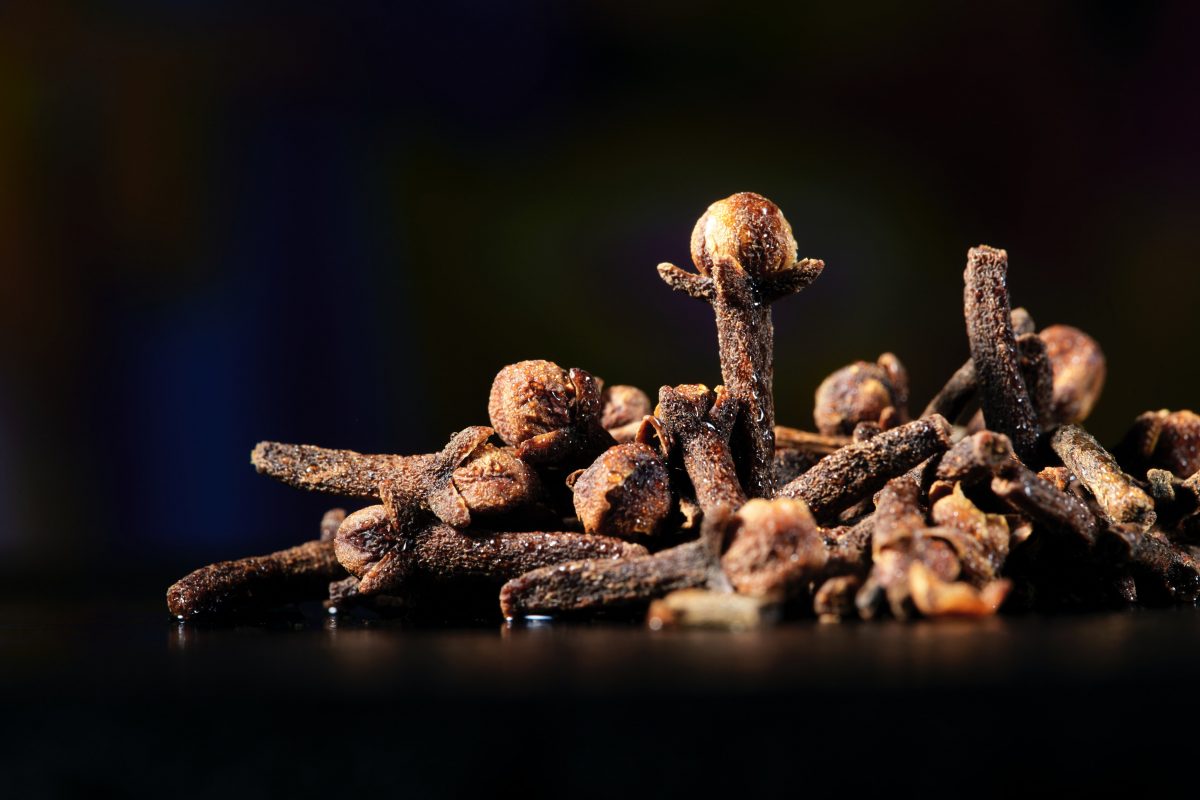Clove is the spice obtained from the unopened, aromatic, and dried flower buds of Syzygiumaromaticum, a tree in the Myrtaceae family. It is a unique kind as it is available in different countries throughout the year owing to its multiple harvest seasons.

Applications of Clove as a Spice
Cloves impart and proffer an intense aroma and flavor to the food it gets added. It enhances the taste of a dish without overpowering any of the primary ingredients. Overall, it creates the perfect harmony between all the components of a cuisine. It is for this very reason that it can work well and complement most sweet and savory dishes.
Clove pairs and mixes well with numerous other ingredients. A few of them comprise vanilla, onion, red wine, peppercorns, basil, star anise, allspice, and citrus peel. It helps make the Indian spice mixture garam masala.
In the gastronomy of the Mediterranean, African, Middle East, and Asian countries, cloves find application in boosting the flavor of various curries, meat products, and marinades. It also works well with different fruits like pears, apples, and rhubarbs. The spice gets used to provide elements of taste and aromatic qualities to several beverages, primarily hot. It forms a typical spice blend recipe that includes speculoos spices and pumpkin pie spice.
In cuisine originating from Mexico, cloves often accompany cinnamon and cumin in various dishes. In Peruvian dishes, it gets used in food like Arroz con Leche and Carapulcra.
In North Indian gastronomy, people utilize clove spice in almost every kind of side dish and sauce. Cove spices find use in biryani to a great extent in South Indian food.
Clove acts as an ingredient in Vietnamese pho, German braised red cabbage, Worcestershire sauce, and whole-baked hams. It also gets used in flavoring hot beverages such as masala chai or tea, mulled wine, and hot apple cider. The sweet dishes where it works include pumpkin pies, stewed pears and apples, and gingerbread. Individuals can also add it to pickling mixtures and jams for that touch of perfect flavor.
Cloves often find application as a flavoring agent in sauces and ketchup. They also get used as a primary ingredient in several types of teas, together with green cardamom.
Benefits of Clove
Besides its role as a flavor and aroma-inducing agent, cloves have and proffer multiple benefits when consumed. They include the following:
- Nutrients: Cloves are rich in nutrients and comprise several essential vitamins, fibers, and minerals. They contain the necessary carbohydrates and calories along with Vitamin K and manganese.
- Antioxidant Properties: The spice is rich in antioxidants that help reduce oxidative stress levels. It prevents the development of chronic ailments.
- Cancer: A few researchers discovered and suggested that compounds in clove, especially eugenol, can aid in slowing down or halting the growth of cancerous cell tumors. They can also promote death in those cells.
- Antibacterial Properties: The antimicrobial qualities of cloves halt microorganism growth. They protect the body from various ailments and aid in maintaining oral health and hygiene.
- Liver Health: Clove can promote liver health and sustain it by reducing inflammations and oxidative stress. It can also reverse the symptoms of liver cirrhosis.
- Blood Sugar: Research has ascertained that specific clove compounds can help keep the blood sugar level under the standard for proper control. It increases the uptake and absorption of sugar into the cells from blood, the secretion of the hormone insulin, and the working and functioning of the cells that create it.
- Bone Health: A low bone mass and weight can lead to severe osteoporosis and an increased possibility of fractures and breaks in the skeletal system. Some components of clove help maintain and preserve bone strength and density.
- Stomach Ulcers: Compounds like eugenol help in treating peptic ulcers or stomach ulcers. The latter otherwise plague the stomach, esophagus, and duodenum. Their primary cause is the reduction of the protective inner lining of the digestive system, resulting from infections, stress, or genetic and hereditary issues.
Clove Harvest Area and Season
Cloves thrive in areas and locations of humid tropical weather receiving approximately 150-300cm of annual rainfall and at about 1500m above sea level. They grow well in red laterite soil, rich black loam soil, and rich loamy soil where the drainage is proper. The ideal weather for the flowering of the clove plant is a bit cooler. These make Indonesia the best place for cloves to grow.
The clove trees start the flowering process from the fourth year of their plantation, reaching the full bearing stage by its 15th year. The flowering season commences in the plains from September to October and at higher altitudes from December to January. After this, it takes about four months for the harvests season. Plump and rounded clove buds featuring color change from green to pinkish indicate this period.
Contact us for discussing supplying Cloves in bulk from here
